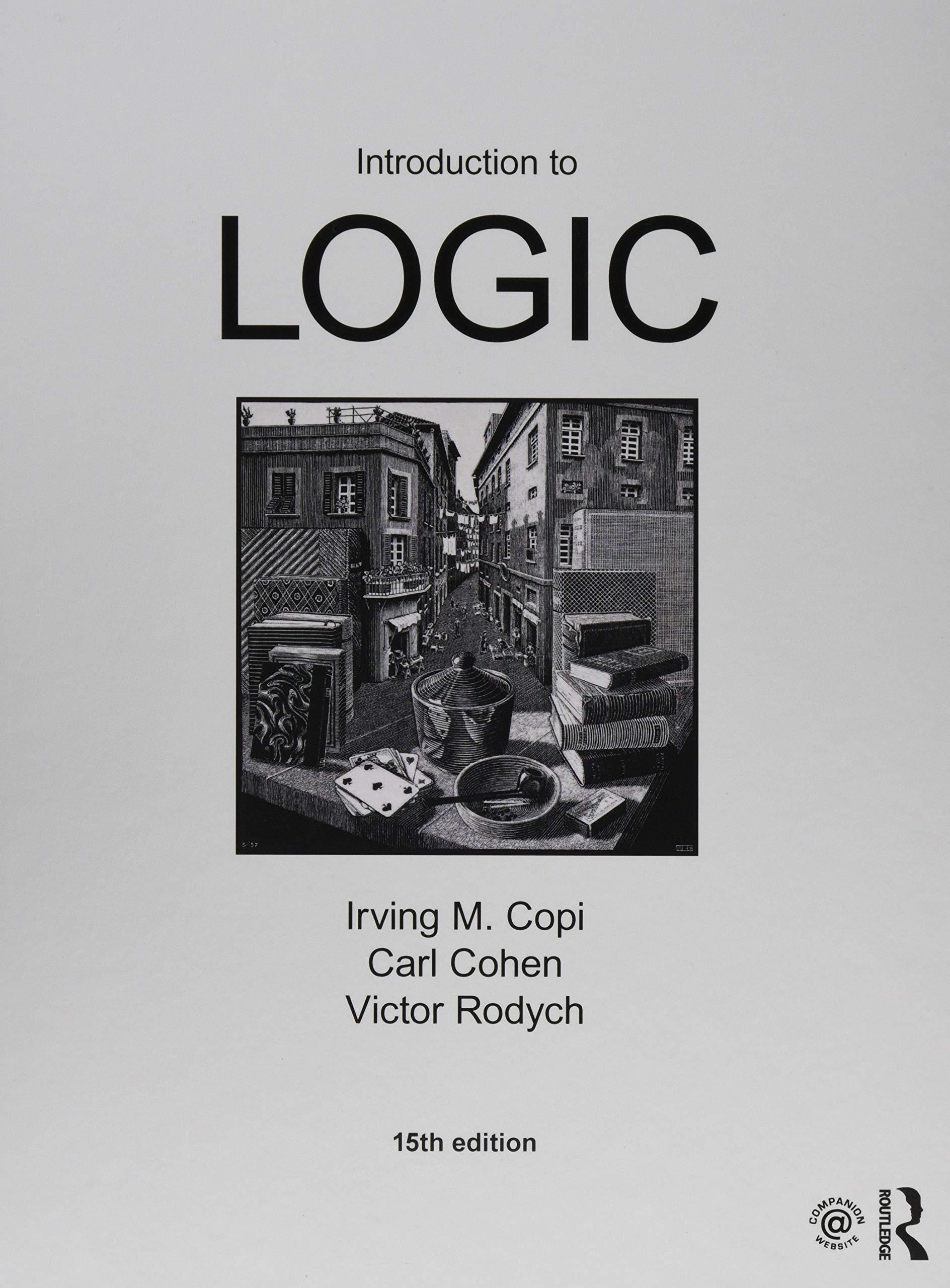Some of the following passages contain explanations, some contain arguments, and some may be interpreted as either
Question:
Some of the following passages contain explanations, some contain arguments, and some may be interpreted as either an argument or an explanation. What is your judgment about the chief function of each passage? What would have to be the case for the passage in question to be an argument? To be an explanation? Where you find an argument, identify its premises and conclusion. Where you find an explanation, indicate what is being explained and what the explanation is.
Rightness [that is, acting so as to fulfill one’s duty] never guarantees moral goodness. For an act may be the act which the agent thinks to be his duty, and yet be done from an indifferent or bad motive, and therefore be morally indifferent or bad.
Step by Step Answer:

Introduction To Logic
ISBN: 9781138500860
15th Edition
Authors: Irving M. Copi, Carl Cohen, Victor Rodych





